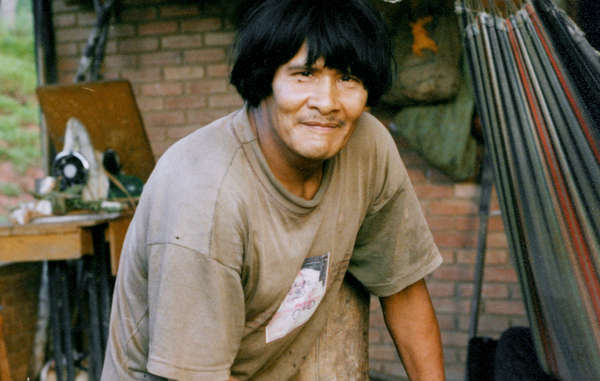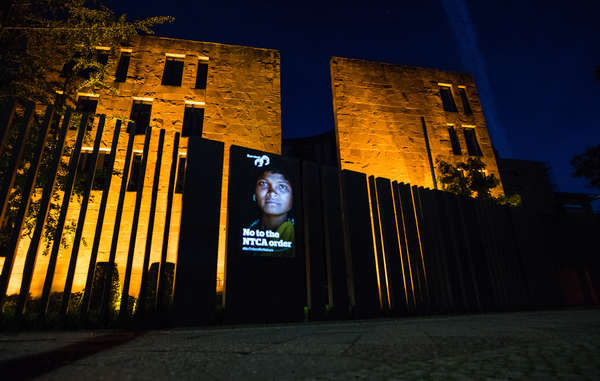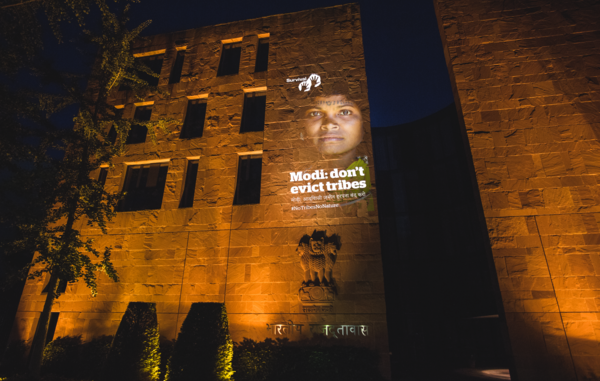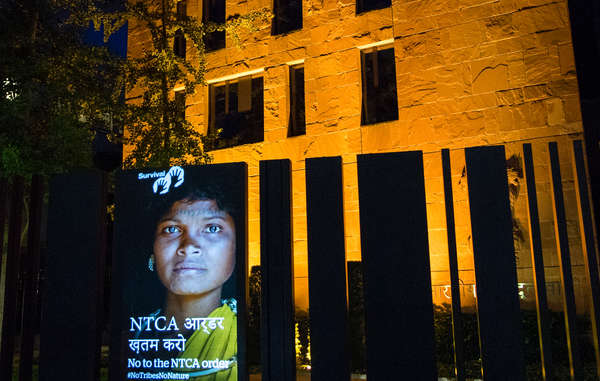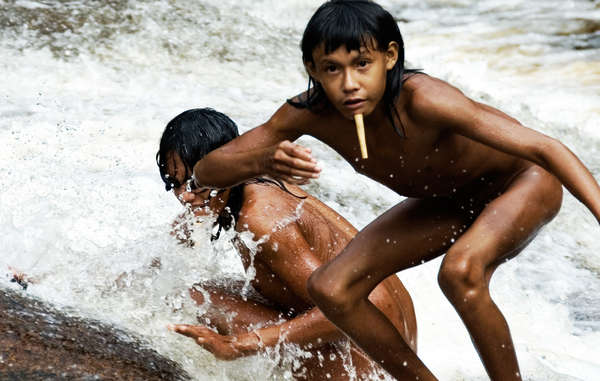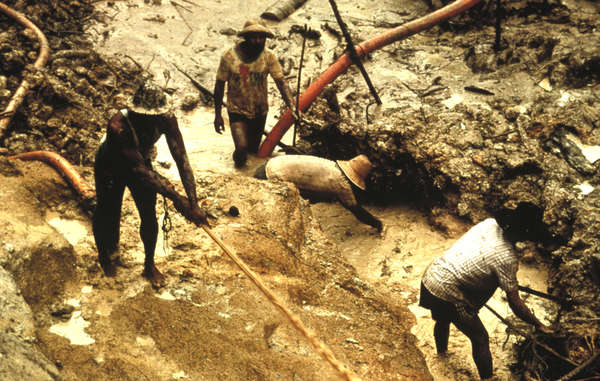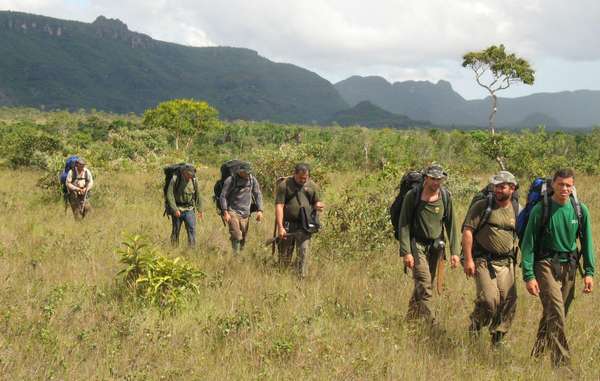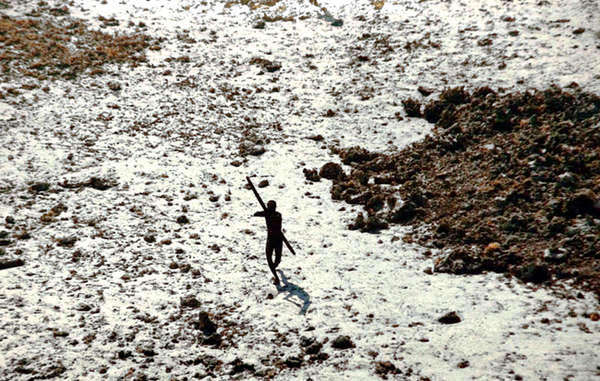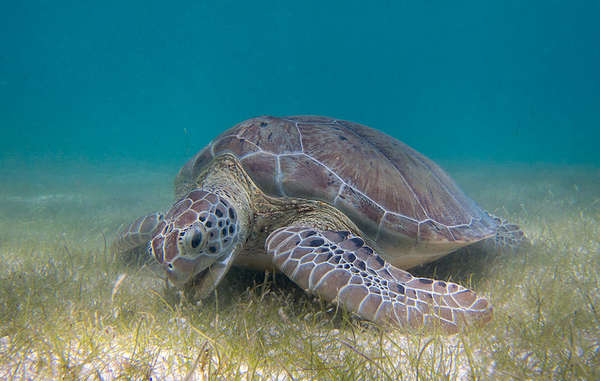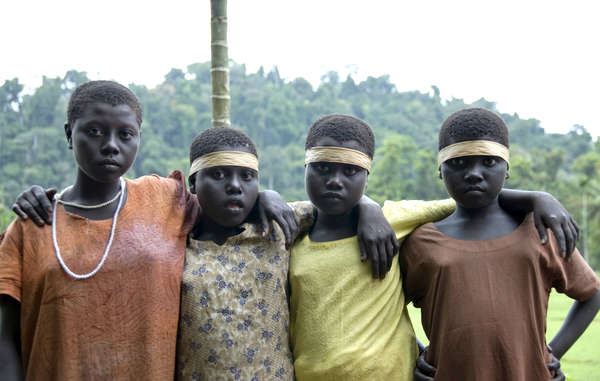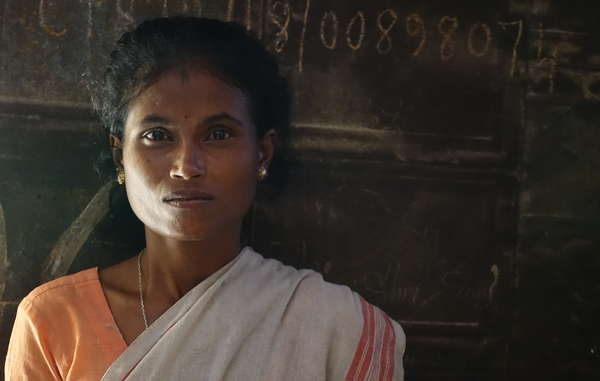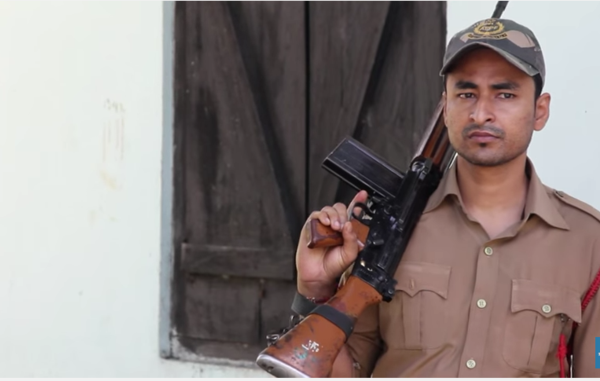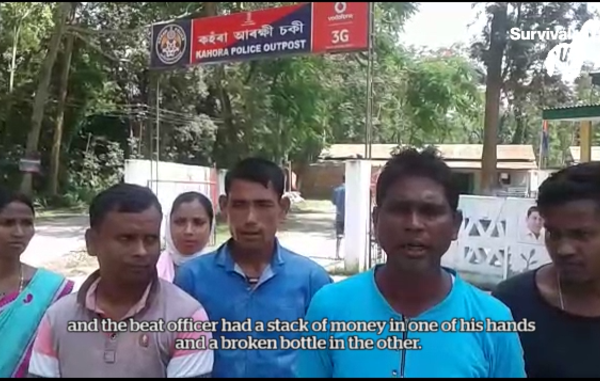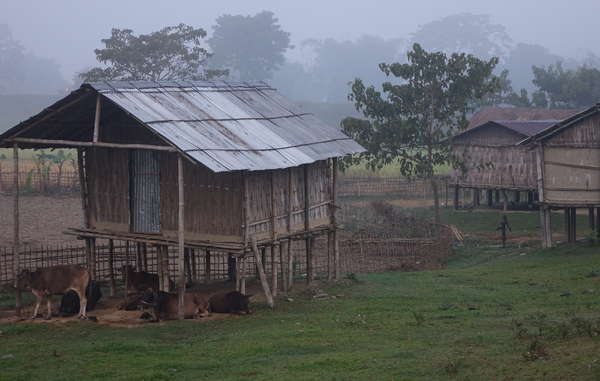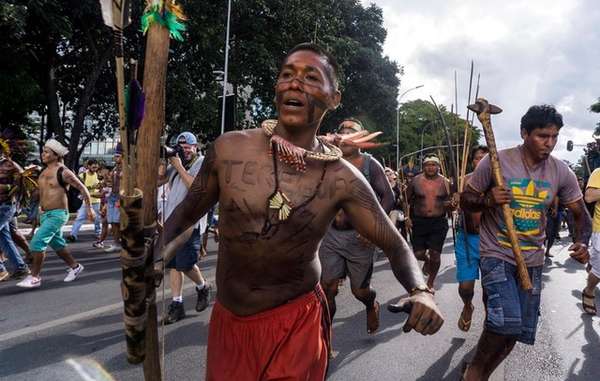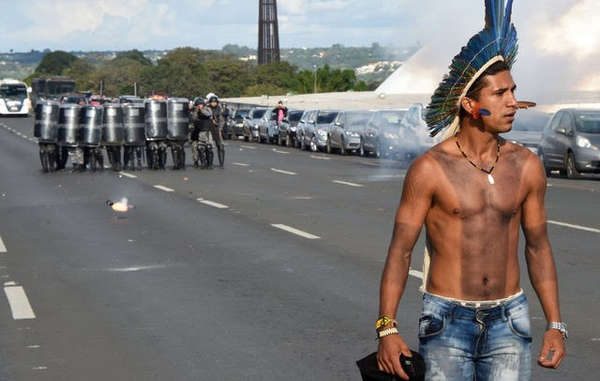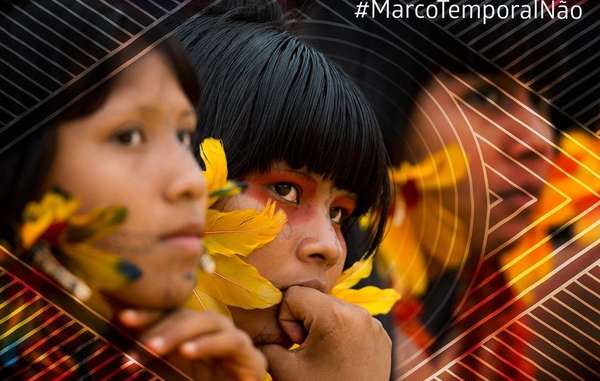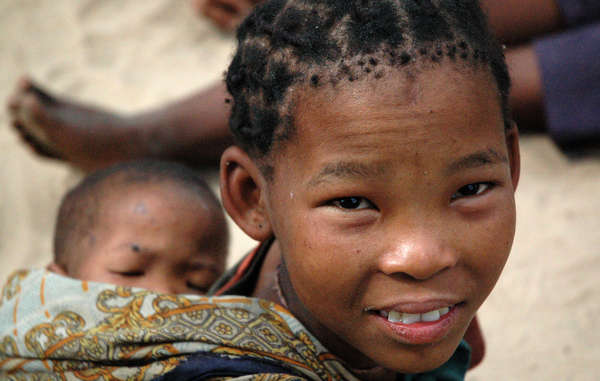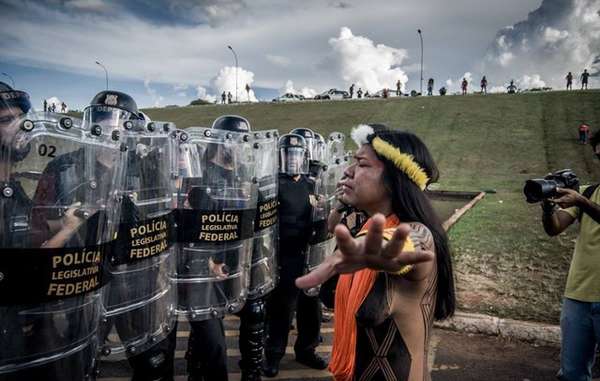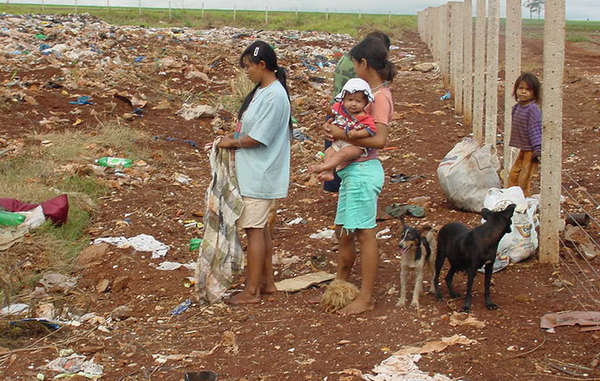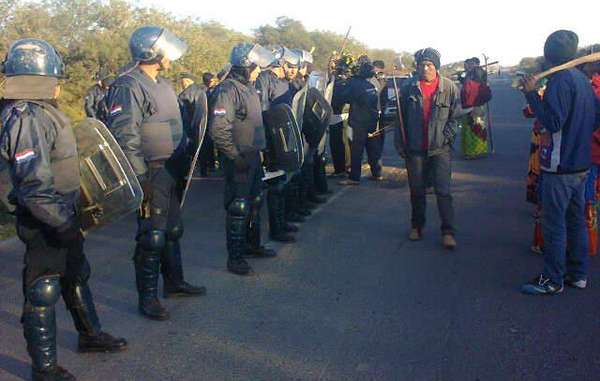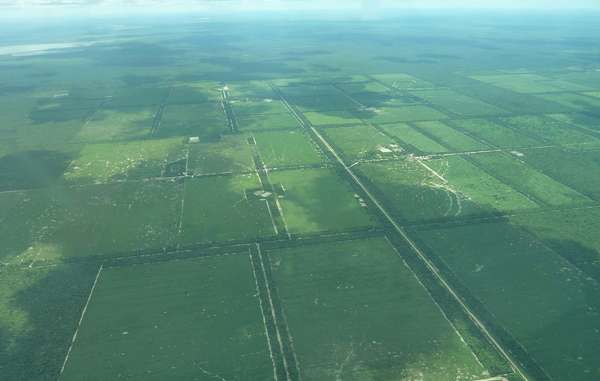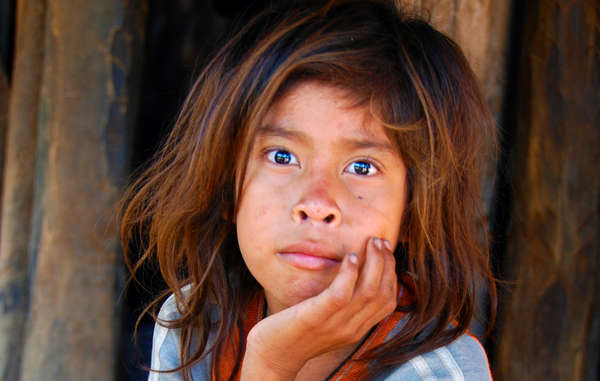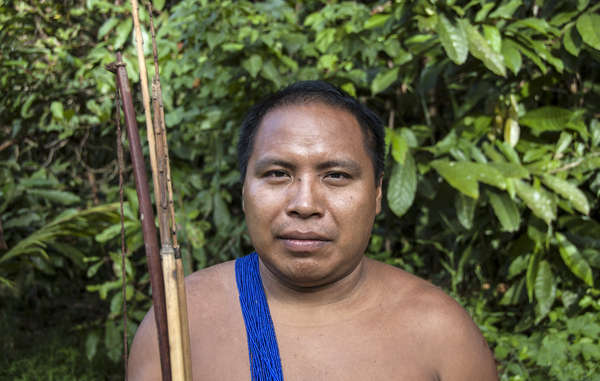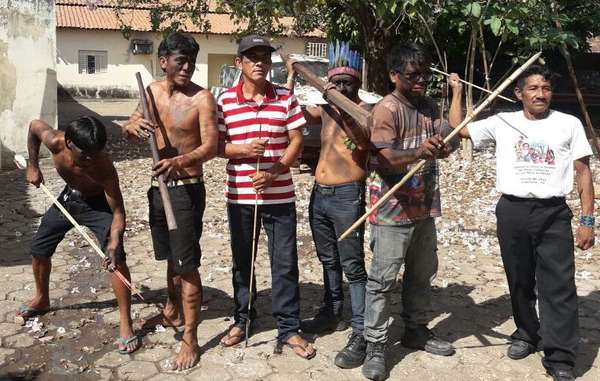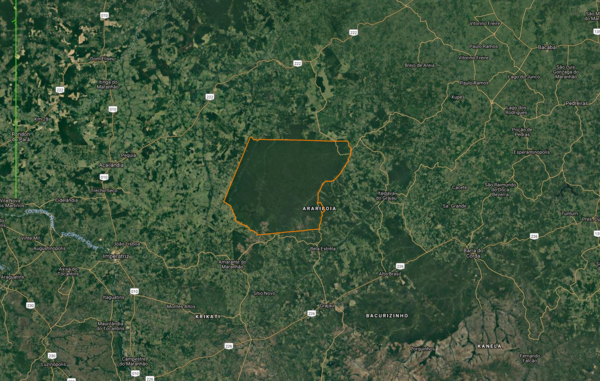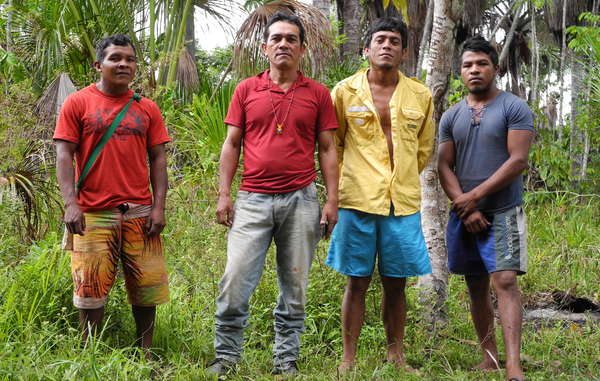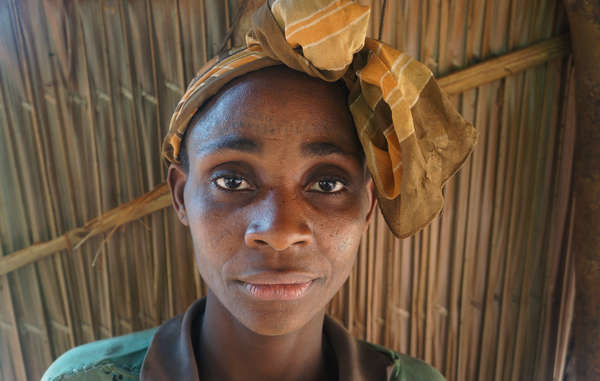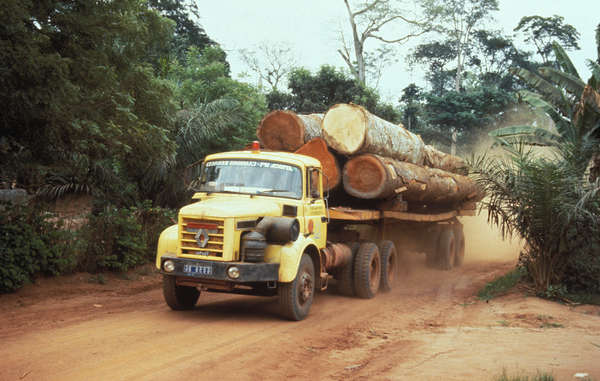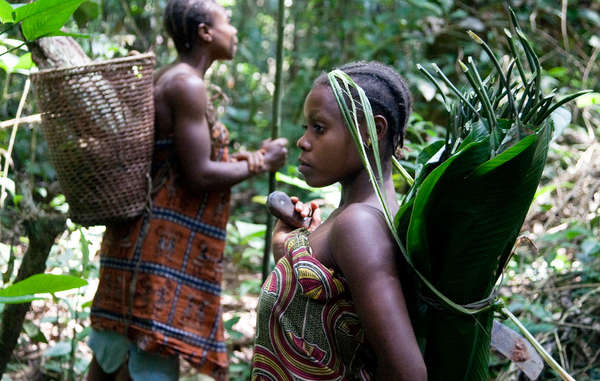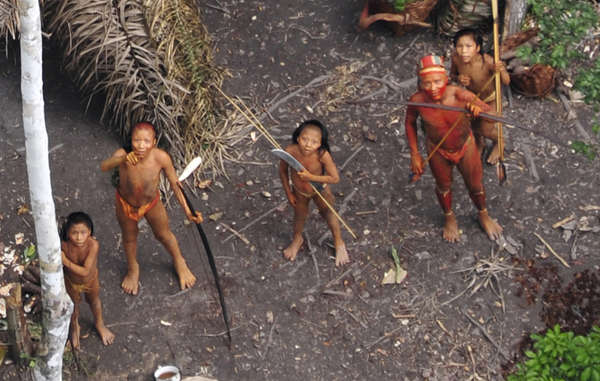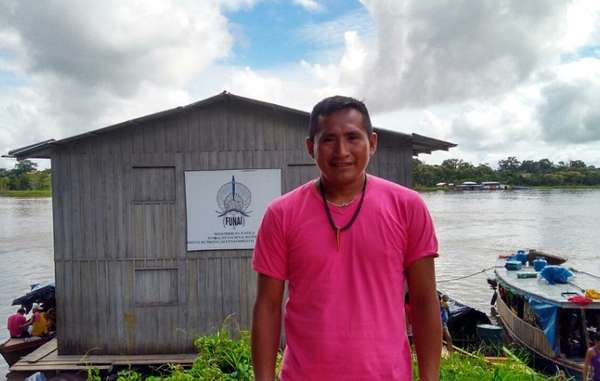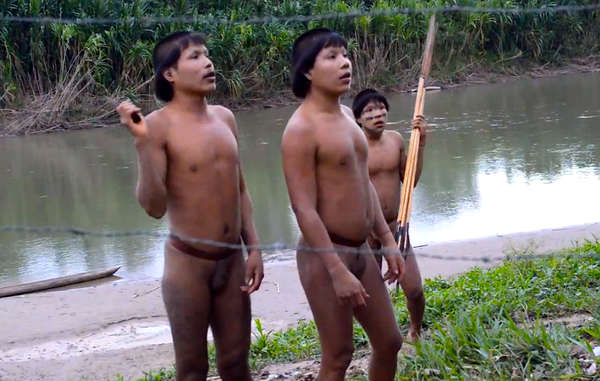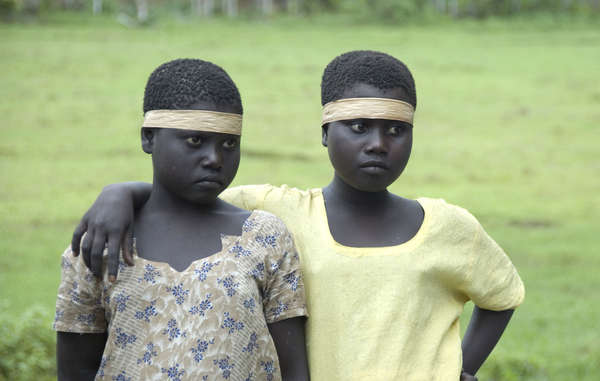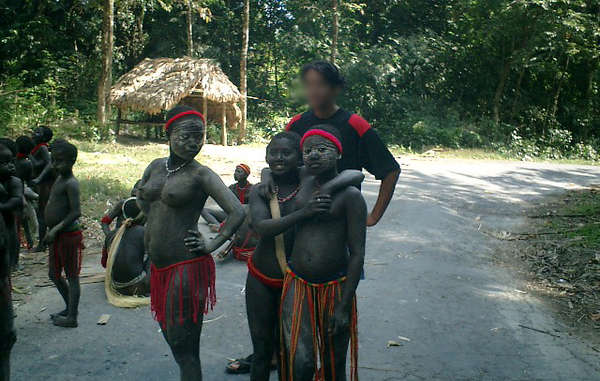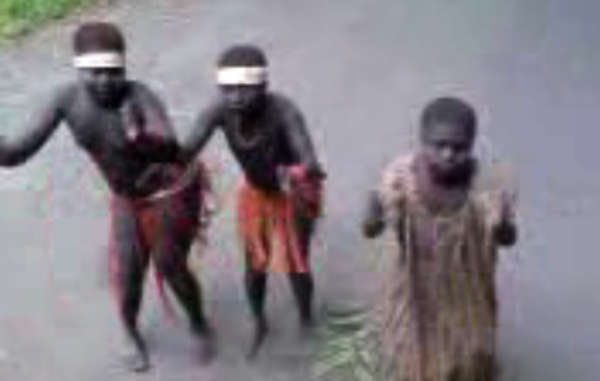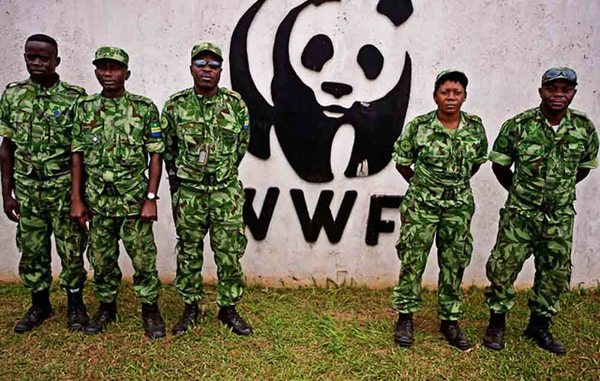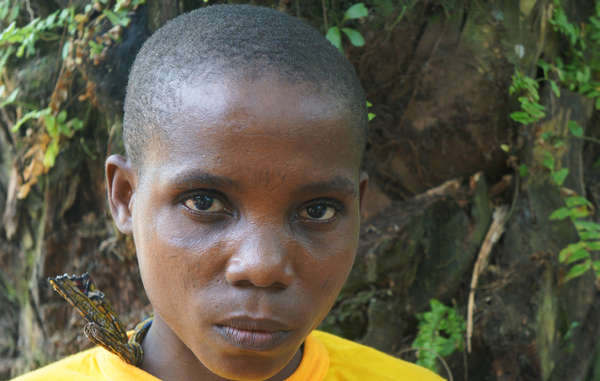![This Baka woman and her husband are among many tribal people in Cameroon who have been beaten by WWF-funded wildlife guards. They were attacked and had their belongings taken from them while they were collecting wild mangoes.]()
This Baka woman and her husband are among many tribal people in Cameroon who have been beaten by WWF-funded wildlife guards. They were attacked and had their belongings taken from them while they were collecting wild mangoes.
© Survival International
The landmark mediation talks between Survival and the World Wildlife Fund (WWF) over breaches of OECD guidelines for multinational corporations have broken down over the issue of tribal peoples’ consent.
Survival had asked WWF to agree to secure the Baka“Pygmies’” consent for how the conservation zones on their lands in Cameroon were managed in the future, in line with the organization’s own indigenous peoples policy.
WWF refused, at which point Survival decided there was no purpose continuing the talks.
Survival lodged the complaint in 2016, citing the creation of conservation zones on Baka land without their consent, and WWF’s repeated failure to take action over serious human rights abuses by wildlife guards it trains and equips.
It is the first time a conservation organization has been the subject of a complaint under the OECD guidelines. The resulting mediation was held in Switzerland, where WWF is headquartered.
WWF has been instrumental in the creation of several national parks and other protected areas in Cameroon on the land of the Baka and other rainforest tribes. Its own policy states that any such projects must have the free, prior and informed consent of those affected.
A Baka man told Survival in 2016: “[The anti-poaching squad] beat the children as well as an elderly woman with machetes. My daughter is still unwell. They made her crouch down and they beat her everywhere – on her back, on her bottom, everywhere, with a machete.”
Another man said: “They told me to carry my father on my back. I walked, they beat me, they beat my father. For three hours. Every time I cried they would beat me, until I fainted and fell to the ground.”
![Conservation has been used as a justification for forcibly denying Baka access to their land, but the destruction of the rainforest by logging companies – some of whom are WWF partners – has continued.]()
Conservation has been used as a justification for forcibly denying Baka access to their land, but the destruction of the rainforest by logging companies – some of whom are WWF partners – has continued.
© Margaret Wilson/Survival
Background briefing
- Survival first raised its concerns about WWF’s projects on Baka land in 1991. Since then, Baka and other local people have repeatedly testified to arrest and beatings, torture and even death at the hands of WWF-funded wildlife guards.
- The OECD is the Organization for Economic Co-Operation and Development. It publishes guidelines on corporate responsibility for multinationals, and provides a complaint mechanism where the guidelines have been violated.
- The complaint was lodged with the Swiss national contact point for the OECD, as WWF has its international headquarters in Switzerland. Talks took place in the Swiss capital, Bern, between representatives of WWF and Survival.
- The principle of Free, Prior and Informed Consent (FPIC) is the bedrock of international law on indigenous peoples’ rights. It has significant implications for big conservation organizations, which often operate on tribal peoples’ land without having secured their consent.
![Tribes like the Baka have lived by hunting and gathering in the rainforests of central Africa for generations, but their lives are under threat.]()
Tribes like the Baka have lived by hunting and gathering in the rainforests of central Africa for generations, but their lives are under threat.
© Selcen Kucukustel/Atlas
Tribal peoples like the Baka have been dependent on and managed their environments for millennia. Contrary to popular belief, their lands are not wilderness. Evidence proves that tribal peoples are better at looking after their environment than anyone else. Despite this, WWF has alienated them from its conservation efforts in the Congo Basin.
The Baka, like many tribal peoples across Africa, are accused of “poaching” because they hunt to feed their families. They are denied access to large parts of their ancestral land for hunting, gathering, and sacred rituals. Many are forced to live in makeshift encampments on roadsides where health standards are very poor and alcoholism is rife.
Meanwhile, WWF has partnered with logging corporations such as Rougier, although these companies do not have the Baka’s consent to log the forest, and the logging is unsustainable.
Survival’s Director Stephen Corry said: “The outcome of these talks is dismaying but not really surprising. Conservation organizations are supposed to ensure that the ‘free, prior and informed consent’ of those whose lands they want to control has been obtained. It’s been WWF’s official policy for the last twenty years.
“But such consent is never obtained in practice, and WWF would not commit to securing it for their work in the future.
“It’s now clear that WWF has no intention of seeking, leave alone securing, the proper consent of those whose lands it colludes with governments in stealing. We’ll have to try other ways to get WWF to abide by the law, and its own policy.”
Watch: Baka father speaks out against horrific abuse
“Pygmy” is an umbrella term commonly used to refer to the hunter-gatherer peoples of the Congo Basin and elsewhere in Central Africa. The word is considered pejorative and avoided by some tribespeople, but used by others as a convenient and easily recognized way of describing themselves.
![]()
